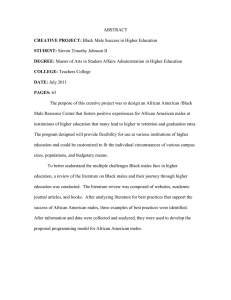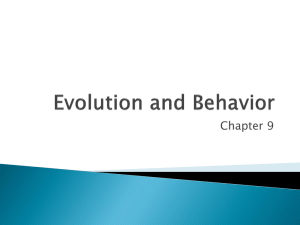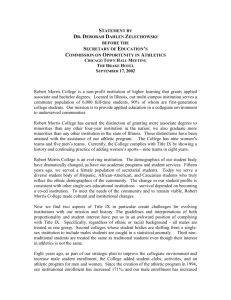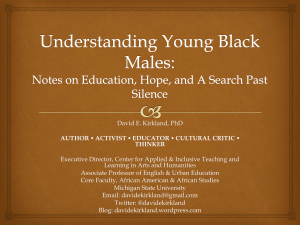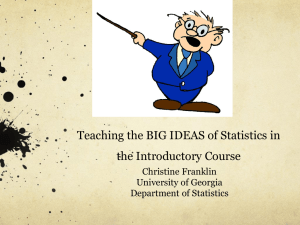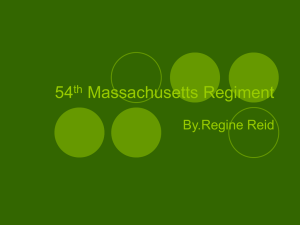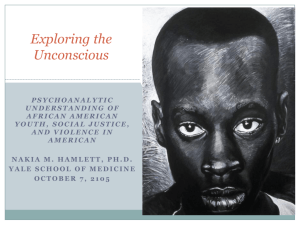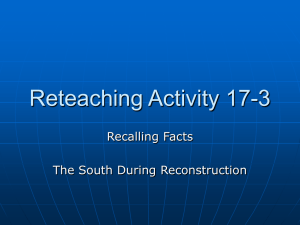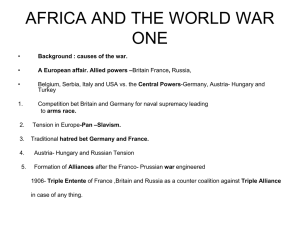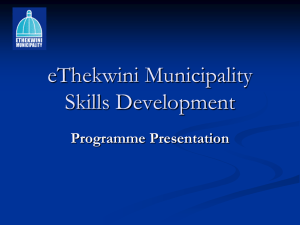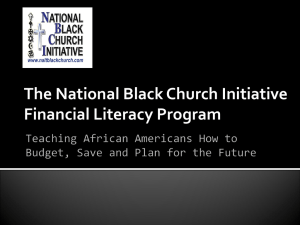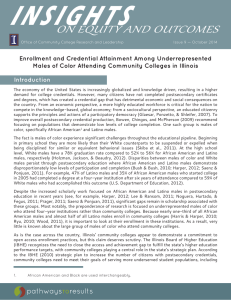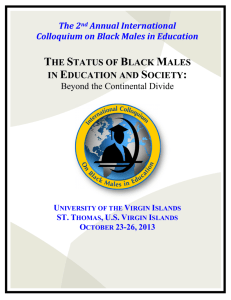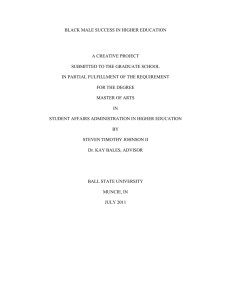Research on African American Males in Higher Education: Centering
advertisement
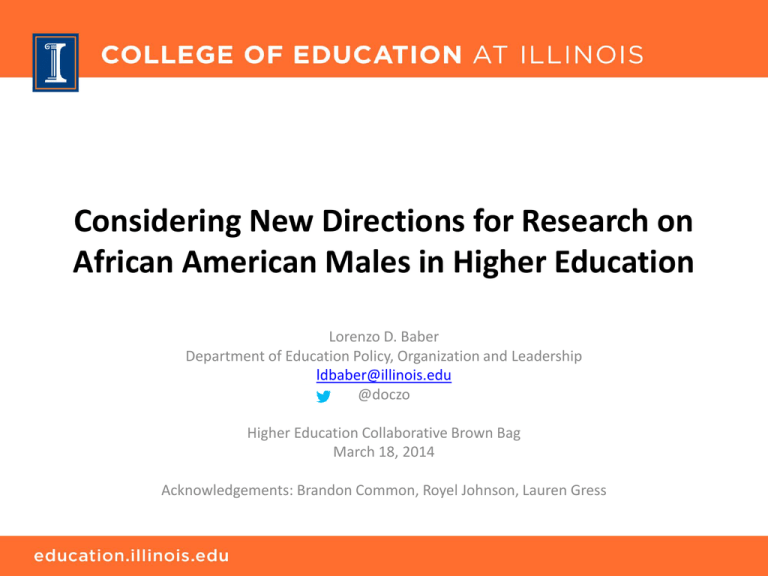
Considering New Directions for Research on African American Males in Higher Education Lorenzo D. Baber Department of Education Policy, Organization and Leadership ldbaber@illinois.edu @doczo Higher Education Collaborative Brown Bag March 18, 2014 Acknowledgements: Brandon Common, Royel Johnson, Lauren Gress Congressional Black Caucus Foundation, Inc. Black Male Achievement Taking Stock, Moving Forward Prepared for the Open Society Institute January 2011 Ivory A. Toldson, Ph.D. BREAKING|BARRIERS 2 Plotting the Path Away from Juvenile Detention and Toward Academic Success for School-age African American Males Illinois Context • Almost 29% of Black male high school dropouts are incarcerated, compared to just under 8% of high school graduates, 2% of Associate degree holders, and .1% of bachelor’s degree recipients • In 2012, the unemployment rate for Black Males in Illinois was 18.1%, compared to 8.7% overall Source: Women and Minorities In the Illinois Labor Force 2013 Annual Report Table 2: Postsecondary Enrollment Trends in Illinois for African American Males 2001 % Total Black 2010 Male Enrollment % Total Black 2001/2010 Male Change Enrollment Public Universities 7,601 22.3% 9,001 19.4% +18.4% Community Colleges 17,869 52.4% 22,199 47.9% +24.2% Private, Notfor-Profit 6,211 18.2% 7,010 15.1% +12.9% Private, ForProfit 2,381 7.0% 8,127 17.5% +241% Total 34,062 46,337 +36.3% 70.0 Community College Enrollment in Illinois by Credential Program 59.1 60.0 49.7 48.4 50.0 47.7 41.0 39.8 40.0 40.8 Less than one-year certificates One-to-two year certificates 30.0 Associate's 26.9 20.0 13.9 10.6 12.4 9.5 10.0 0.0 Illinois Overall Black Males Latino Males White Males Baber and Graham (forthcoming) Literature Review • 55 studies published in peer-reviewed articles between 2003-2013 • Focus on African American males in postsecondary education • Excluding edited volumes, special issue journals, and policy reports Tendencies in Research on African American Males in Higher • • • • Qualitative Methods Four-year Institutions Homogenous Sampling Psychological and Developmental Frameworks General Findings • Management of Stereotype Threat – – – – ‘Prove’ Worthiness Self-responsibility for Maintaining Aspirations Coping Strategies for Micro-aggressions Identity Performance • Access to Social and Cultural Capital – – – – Diverse Interactions Same-Race Peer Support Involvement in Student Organizations Precollege Factors General Findings • Alternatives to Traditional Notions of Black Masculinity – Raced, Gendered Identity Development – Cultural Awareness – Role Models • Rejection of African American male peers – Within Group Stereotypes – Divisive Competition for Recognition and Status – Social Hierarchy Need for New Directions Researchers have expressed rejection for the monolithic perspectives of African American males in higher education, stating that understanding within-group diversity is foundational to improving outcomes. Yet, a homogenous sample dominates current literature: traditionally-aged, ‘high-achieving’ students attending four-year institutions. Need for New Directions Overall, there is a dominance of the developmental and psychological paradigms in research on African American males in Higher Education. When social contexts are considered, they are treated as a secondary influence that facilitate or hinder identity status, self-efficacy, or academic achievement. Research on African American Males in Higher Education: Centering ‘Space’ “[Spaces] are doubly constructed: most are built or in some way physically carved out. They are also interpreted, narrated, perceived, felt, understood, and imagined. A spot in the universe, with a gathering of physical stuff there, becomes a place only when it ensconces history or utopia, danger or security, identity or memory. In spite of its relatively enduring and imposing materiality, the meaning or value of the same place is labile—flexible in the hands of different people or cultures, malleable over time, and inevitably contested.” (Gieryn, 2000) Questions • What are your thoughts on the current research on African American males in higher education? • How does this research compare to other education areas (pre-k to ’20’). • What additional directions would you suggest?
